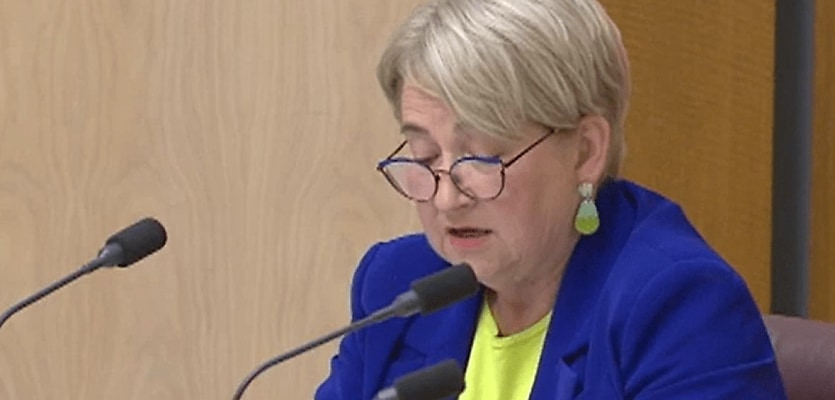Greens senator Barbara Pocock called Labor’s housing targets “pie in the sky” following a Treasury leak that confirmed the government was off track to meet its housing targets.
On Monday (14 July), the ABC revealed confidential Treasury advice warning the Albanese government that its goal of building 1.2 million homes over five years would not be met.
As the government collects tax reform ideas ahead of its August productivity roundtable, Pocock said that adjusting property tax concessions could boost affordability for first home buyers.
“We need more homes to be built, but we also need to make sure first home buyers and owner-occupiers are actually able to purchase them,” she said on Tuesday.
“Currently, 70 per cent of home lending is going to people who earn over $200,000 a year. To make home ownership accessible to those not on a top tier salary, we need to tackle the tax problem by limiting negative gearing and scrapping the capital gains tax discount.”
Modelling by policy think tank the Grattan Institute found that rolling back property tax incentives would have limited impacts on house prices, but could save the government a substantial amount of money.
Analysis by the independent Parliamentary Budget Office (PBO) found that scrapping negative gearing and the 50 per cent capital gains tax discount for most investment properties would raise the government an estimated $5.85 billion over the four financial years to 2028–29.
The Grattan Institute added that axing property tax concessions could shift the playing field in favour of home buyers over investors, potentially boosting home ownership rates.
“While removing these concessions might only have a minimal impact on house prices. It would help shift the balance slightly away from property investors towards home buyers,” Grattan Institute housing analyst Matthew Bowes said.
“Recent research suggests that this would help to increase home ownership rates maybe by a couple of percentage points.”
The Greens also called for higher rent assistance rates as rental costs continue to climb.
“People struggling with high rents who are relying on Commonwealth Rent Assistance should be given immediate relief through an increased rate,” Pocock said.
“This government must raise income support levels above the poverty line and work with the states and territories to control unlimited rent increases and make lasting improvements to renters rights. Nobody deserves to teeter on the knifepoint of housing instability.”
A report by housing advocacy organisation Everybody’s Home found that rents have increased by an average of 57 per cent across Australian capital cities over the past decade.
This has seen average Australian rental prices climb from $473 a week in 2015 to $742 in 2025.
“With more Australians renting than ever before and being priced out of the private housing market, the need for more low-cost rentals is essential,” Everybody’s Home spokesperson Maiy Azize said.
“We need government action that matches the scale of the housing crisis. Australian governments have stepped up and mobilised during other emergencies, from COVID-19 to natural disasters. Housing should be no different.”




You are not authorised to post comments.
Comments will undergo moderation before they get published.